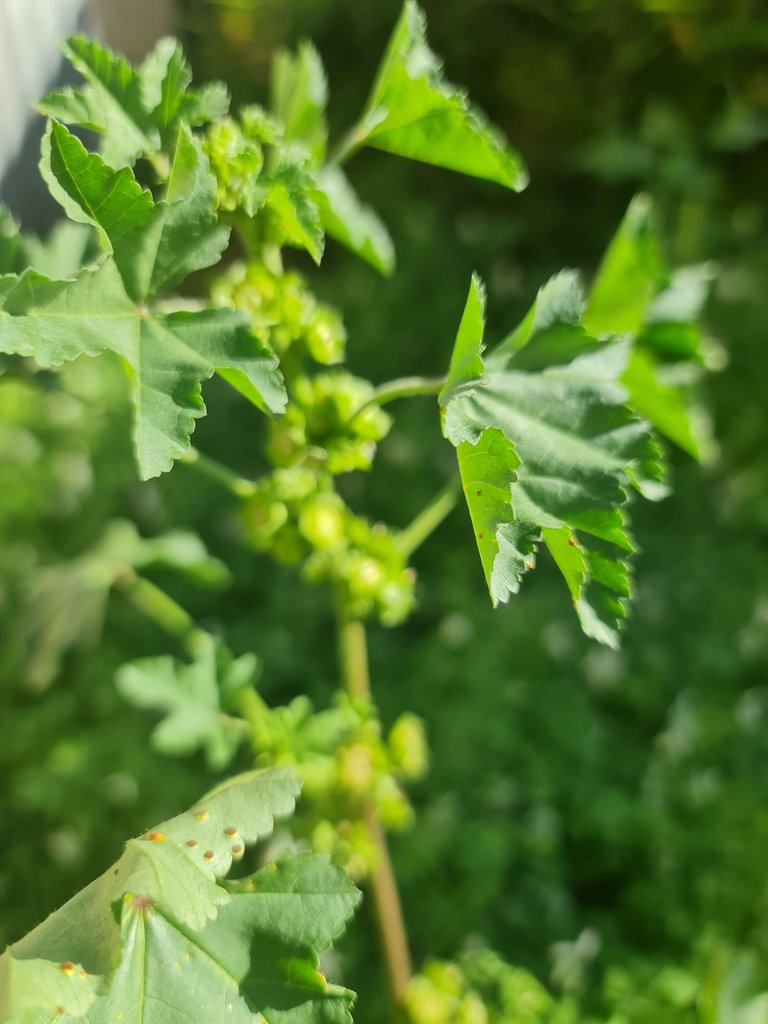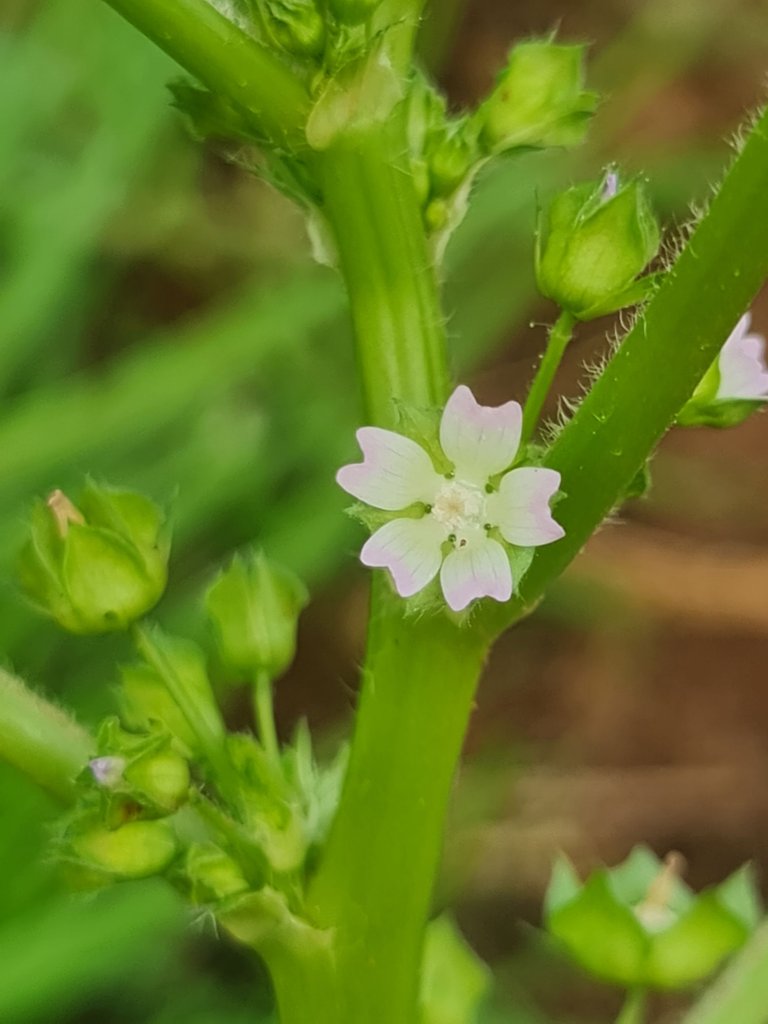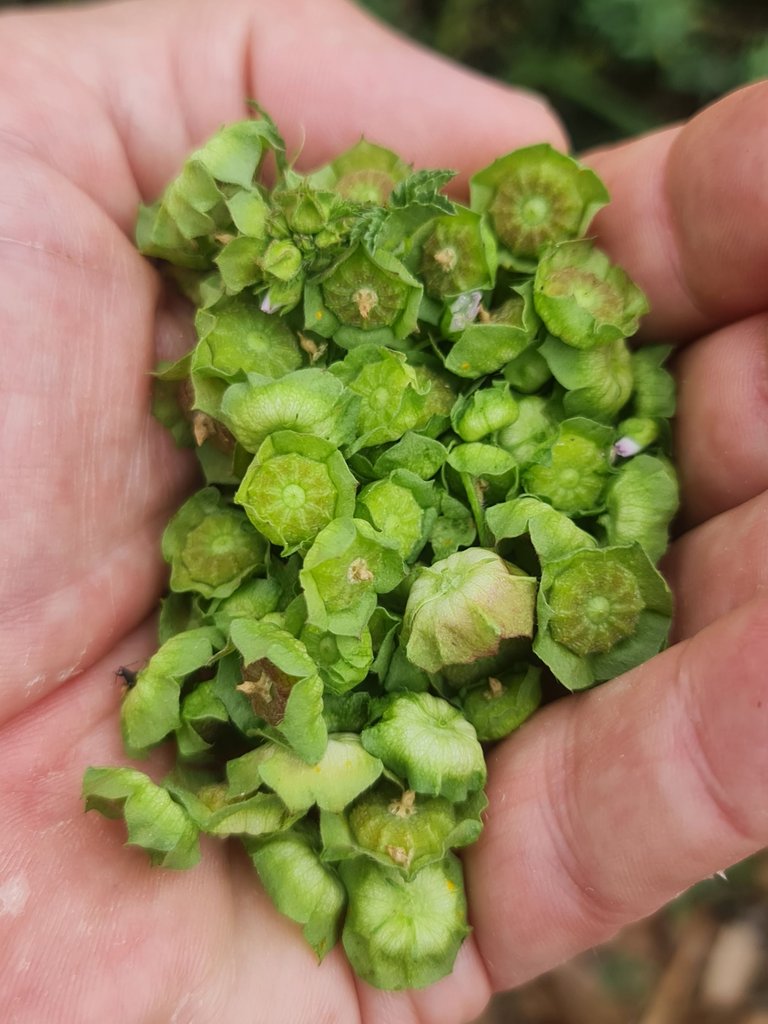
Here's another seasonal foraging post to help folks reduce their food and medicinal bills. Thanks for the great response to them so far. Its good to know there are other foragers out there surviving on Centrelink!
This one's about the Mallows that are growing at the moment. They're not Marshmallow, though some folks call them that. What we mostly have here in Adelaide is Small Flowered Mallow (Malva parviflora). It's a relative of quite a few plants that you may know, all of which are edible and medicinal - Hollyhocks, Hibiscus, Rosella, Okra and Cotton.
All of the Mallow family (except perhaps cotton) have good nutritional content, are easy to grow and find and easy to prepare. All parts of them can be used, from the flowers to the roots. You can cook with the larger leaves as a substitute or added leafy green.
They are all soothing herbs, great I cases of inflammation whether internal or external. If you chew slowly on a Mallow leaf or seed you will notice it becoming slimy in your mouth. That's the soothing mucilage coming out. Don't be scared, you can swallow it!

Crush up leaves to make a poultice or compress for external wounds, rashes inflamed sores etc and even inflamed arthritic joints.
Make a cold infusion for internal inflammations. Cold infusions are made like a strong tea but using room temperature water and being left for several hours before straining and drinking. This is the best way to extract the soothing properties.
Drinking a cold infusion helps with constipation and also with internal inflammations including arthritic joints. Interestingly, it's been found that the molecules that make up the mucus are to big to go through the gut wall but they still work! Science will catch up with herbalism eventually.

Chewing the green seeds is a great way to relieve thirst in the warm weather. If you look at the seeds, they are a little disc that can be broken into almost perfect wedges. That's how this plant got another if its names - Cheese plant because it looks like the wedges of cheese cut from a big wheel!
Small Flowered Mallow is a very safe addition to your diet or medicine cabinet.
You may notice that some plants in your area have brown or rust coloured spots on the leaves. This is a kind of Rust fungus that affects them. It won't hurt you if you harvest unaffected parts from the sane plant.
Some of you may have seen that I've been writing a series of posts about herbs and making herbal remedies at home. I want to share what I know of this topic so that, as the world gets crazier, folks will have other avenues of medical care, namely those of themselves and their community. If you look back over this blog, you can see heaps of info on the topic, plus loads and loads of posts on herbs and using Australian bushfoods from a white perspective. If you haven't been around on in the @hivegarden and @naturalmedicine communities for long, you may be interested in looking back. There's w-a-a-a-a-y too much there for me to repost and the Hive system doesn't let you vote on old posts so, if you're happy with what you find, I believe that there is now a tip option...





Thank you @qurator and @ewkaw!
a very useful post, thanks for sharing those info, i remember that my aunt uses a similar plant to make herbs tea, she told me that it supports the immune system. is it better to plant it n a sunny place or even a little sun would b ok ? how much water does it need & how often ?. again -useful post -well done & have a good day
Thanks! Happy to share the info. Mallow are a tough bunch and thrive under a wide range of conditions. They are excellent weeds and get by on natural rainfall and full Sun. Grown in shade they are softer but seem to produce more seeds in the Sun.
Your aunt is onto a good thing!
You can check out this post and your own profile on the map. Be part of the Worldmappin Community and join our Discord Channel to get in touch with other travelers, ask questions or just be updated on our latest features.
Hooray!
Hey @ligayagardener you are welcome.
Thanks for using @worldmappin 😘